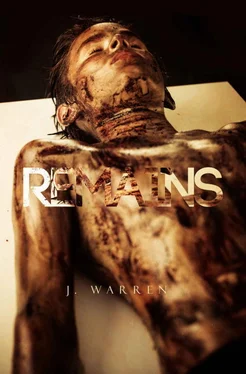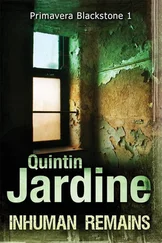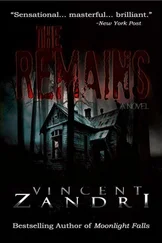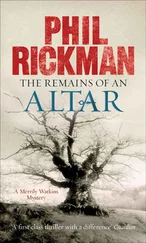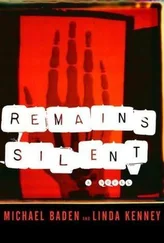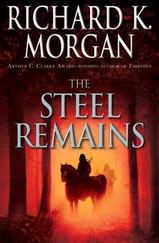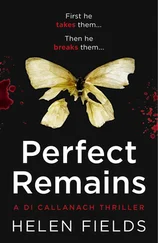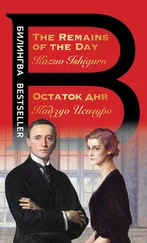“Mike, dear,” my mother said, standing at the door, “could you run to the store for me? I didn’t get anything for breakfast.” I nodded and pushed on the wad of tissue stuck up my nose. She handed me the keys to her car as I walked into the hallway, then turned to go help Sarah settle in. I stood there for a moment, listening to them.
“Sarah, dear, you look so thin. Is that girl—what is her name, dear?”
“ Diane , mother,” Sarah said.
“Diane—is she not feeding you at all?” my mother asked, and I heard Sarah snort. I turned, and walked downstairs. In the living room, my father was parked in front of the television. He’d found highlights of the weekends football games on some news program. He was grinning to himself and squinting.
“I’m going out to the store,” I said into the darkness of the room.
He waved a hand at me, saying “That’s fine. Check with your mother and see if she needs something.” I started to reply, but decided against it.
My mother’s car was a fourteen-year-old Dodge. The light blue interior had long since gone gray, and the imitation-metal plastic of the knobs had long since worn from silver to white. The car smelled like the back end of a flower shop, near the dumpster; a graveyard for air fresheners in clever packaging. I had to roll down a window.
Street connected to street and I started to remember. Everything seemed to be the same for a second, then completely unrecognizable the next. The butcher’s was now a video rental store, but they never got all of the old paint out of the window, so a phantom ‘$ 0.55/lb’ hung in space next to a picture of Sylvester Stallone in full war gear. Seeing it made something in my chest grow hard, sharp. “The world is always moving on,” Dr. Bledsoe was constantly telling me.
Nothing had changed about the town. It seemed like any minute, I’d see myself as a kid go pedaling by. It was creepy but comfortable.
The grocery store was still in the same place, though. Delbert’s market had never moved. I walked in, feeling more than seeing the florescent lights flicker. The smell instantly brought me back; cabbage mixed with cardboard. I tried to tell Susan about it once, in another market, but couldn’t make her understand. This market had always felt like confusion and comfort at the same time, to me. As I walked in, I saw an old woman working behind the seafood counter. Without realizing it, I’d kept walking, though not watching where I was going. I felt my shoulder hit someone, and heard a basket clatter to the ground.
My eyes came up, and locked with Alvin Densmore’s. He was chubbier than I remember, and his eyes were dull. He had a huge blood-red apron on, and a name tag that said he was “Al” in fat marker strokes. His eyebrows creased together and he squared his shoulders.
“Why don’t you watch where you’re—,” he’d started, then seeing who it was, grinned, “Holy shit. Holy shit . Mike? Mike Kendall?” he stepped back as if unsure of his eyes. He stopped, though, and I could actually see the memory come back to him.
I nodded. “Yeah,” I said, and touched his badge. “Al?”
He smiled and looked at the floor; “yeah, well; too many chipmunk references, y’know?”
I laughed. He looked up at the sound, checking my face for something. I wondered what it was until it hit me; he wanted to know if I was making fun of him. I smiled back at him, and I saw his face relax.
“Here,” he said, bending down. He started putting my things back in the small basket I’d picked up. I bent to help him. “You back in town?” he asked.
“Just for the holiday,” I said.
“Oh,” he said, “you’re dad’s in here all the time.”
“Oh?” I asked, putting the bread back in the basket. We stood up at the same time.
“Yeah; I mean, I see him. He doesn’t know me or anything,” he said, shrugging. We walked to the small register behind the little counter. There was no computer screen or keypad; it was the same register that had been here my whole life. I laughed a bit, and gestured toward it. He shrugged and smiled at me, but before I could smile back, I saw his face fall.
“Pack of Slims,” a voice behind me said, and I froze. I don’t know how, after all this time, I knew instantly who that was, but I did.
I turned around to find Sheriff Aiken. I remember one time touching a car’s bumper in the school parking lot one December morning. That crisp, clean, icy feeling is the way I’d describe the Sheriff’s eyes in my own head. To anyone else, I’d say they were blue, but I’d know what I meant.
“Absolutely, Sheriff,” Alvin said, standing and moving off toward the wall where the cigarettes were. I watched him go.
“You Susannah Kendall’s boy?” the Sheriff asked. I nodded. The edge of his lips quivered upward, “Hell. Ain’t seen you in a coon’s age. How’s your mama?”
“Fine, sir,” I said. Alvin was rushing back.
“Where’d you disappear to, son?” the Sheriff asked.
“Got a job up north,” I said.
Alvin was nearly to us, when the Sheriff turned slightly, as if knowing exactly where Alvin had been, put his hand out, all without taking his eyes of me. Alvin put the pack in his upturned palm.
“Three fifteen, Sheriff,” Alvin said as if he didn’t want to.
“Hell. What sorta establishment you runnin’ here, boy? Highway robbery,” the Sheriff said, reaching into his breast pocket. He handed across four ones.
“Sorry, Sheriff,” Alvin said, opening the drawer and pulling out some coins. The Sheriff took them and put them back in the same pocket without taking his eyes of me.
“Awww, hell. Nasty habit, anyway. I gotta quit,” he said, “Ol’ Susannah Kendall. Now there was a looker, boy; I mean ,” the Sheriff said, opening the pack and shaking one out. He put it between his lips. Alvin looked like he was about to say something. “You tell ol’ Susannah that I said hello,” he said and smiled. I tried not to think about a wolf. He walked past me, and out the door. I leaned in close to Alvin, who was trying not to look nervous.
“You tell ol’ Susannah I smoke five packs a day, boy,” Alvin said, doing a fairly good imitation of the Sheriff. We both laughed, looking at the door as if he would burst back through it and catch us. I got the oddest feeling that he was watching, even without being there. I shivered.
“Jesus, that guy,” Alvin said, still grinning.
“Yeah,” I said, “I thought he’d be dead by now.”
“No such luck. Believe it or not, I bet he’s not fifty-five yet,” Alvin said. I didn’t say anything, just looked over my shoulder back out the door. “He’s been damn near impossible to find last two days is what I hear,” he continued.
“Why’s that?” I asked.
“This whole thing with that set of bones they found. Newspapers start poking around here, looking for some answers. He knows he doesn’t have ’em.”
“What do you mean?”
“No idea who the bones are, is what I mean. I heard it slip around that they’re a little boy’s,” he said, and I froze. I must’ve not looked so good.
“You okay?” Alvin asked.
“Yeah. Yeah, I’m fine. I gotta’ get some stuff for ma and get back. She’ll worry,” I said, and walked away from the counter. Alvin followed behind me.
“How is your mom?” he asked, “I haven’t seen her in here in a little while.”
“She’s okay. She doesn’t like to go out of the house, though, you know that.”
“Yeah.”
I pulled out the crumpled list from my pocket and tried to remember where things were. After a few moments, I turned to Alvin. He must’ve seen something on my face, because he took the list.
“Come on,” he said, and I followed. “Yeah, he comes in just about every day. Picks up a pack or two of cancer sticks, some ground beef and a six pack of beers. That is, on the normal days,” he said, picking up a gallon of milk and putting it in the basket.
Читать дальше
